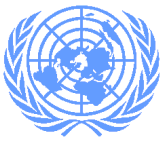ASHGABAT DECLARATION
Topic: Permanent Neutrality
 We participants in the international conference "Permanent neutrality of Turkmenistan: national foundations and international significance" and representatives of States Members of the United Nations,
We participants in the international conference "Permanent neutrality of Turkmenistan: national foundations and international significance" and representatives of States Members of the United Nations,
Congratulating the people of Turkmenistan with the State holiday "Neutrality Day" and welcoming the fifth anniversary of the adoption the General Assembly of the United Nations of the resolution the permanent neutrality of Turkmenistan, Adopt this Declaration and declare the following: 1. For five years, Turkmenistan acts as an officially recognized permanently neutral State in the international arena. It has confirmed its unwavering commitment to the international obligations it undertook in this capacity: the status of neutrality has decisive for Turkmenistan in determining its approaches and positions issues of bilateral relations and regional and international policy. Neutral Turkmenistan has not joined military or military-political bloc, association or alliance or any kind of international structure with functions that are rigidly regulatory or entail collective responsibility and has adhered strictly and unswervingly to the principles of peace, equality of rights, good-neighbourliness and non-interference in the internal affairs of other countries. Turkmenistan has actively involved in activities of the international community aimed at ensuring , harmony and constructive cooperation.
2. Turkmenistan's policy of permanent neutrality has important factor in the maintenance of regional security and stability. Turkmenistan, making use of its potential as a neutral State, has pursued active and constructive policy in the region aimed at creating conditions conducive to the peaceful, non-violent settlement of disputes and conf1icts. Turkmenistan initiated the holding, under United Nations auspices, of continuous round of inter-Tajik talks in Ashgabat, which made significant contribution to the establishment of and harmony in Tajikistan. Turkmenistan's neutrality and its steadfast and principled position of non-interference in the internal affairs of Afghanistan laid the ground for the commencement of process aimed at achieving political dialogue between the warring Afghan sides. In March 1999, in Ashgabat, representatives of the Taliban movement and the Northern Alliance sat down at the negotiating table for the first time. This active and constructive policy of Turkmenistan, pursued in parallel with United Nations efforts, has earned it great authority among neighbouring States and in the region as whole and has secured the rightful promotion of Ashgabat to the rank of recognized peacemaking centres in Asia.
3. In its economic policy, neutral Turkmenistan has proclaimed and is consistently putting into practice the "open doors" principle, aimed at mutually advantageous cooperation with States, and is establishing equal conditions for the effective functioning of foreign companies in its territory, irrespective of their national origin and form of ownership. This approach of Turkmenistan is ensuring steady interest the part of foreign partners in commercial and economic cooperation with Turkmenistan, facilitating the establishment of sound climate for investment in the country and ensuring the gradual development of its economy .
Turkmenistan is actively participating in regional and inter-regional economic cooperation. Large-scale inter-regional projects are currently being implemented on the initiative of and with direct participation Turkmenistan in the energy, transport and communication sectors with view to giving impetus to the accelerated economic development of the countries of the region and narrowing the technology gap between developed and developing and industrial and agrarian States. In addition, Turkmenistan is a firm advocate of compliance with the principles of complete equality of rights in relations between States and exclusion from the practice of international relations of forms of economic blackmail, dictate and pressure.
4. Given the global character that the problem of securing and distributing energy resources is assuming in the twenty-first century, as well as its own huge fuel potential, Turkmenistan has set about developing and implementing large-scale projects involving the laying of pipelines westward, southward and eastward. A multi-variant pipeline infrastructure will ensure the increase and diversification of world energy reserves and allow for their stabilization and equitable international distribution. The construction of systems for the transport of oil and gas to the west, the Far East and across Europe and the Iranian and Caspian routes will require unprecedented regional cooperation, serve to create huge number of jobs and address social issues, and give strong impetus to the rational cessation of conf1icts. In the twenty-first century, exceptional need is arising for triangular cooperation: among producer countries, transit countries and consumer countries. Dangerous maneuvering and unhealthy competition are giving way to new global approach based the principle of equal benefit, adequate for all . In this context, Turkmenistan's initiative for the drafting and adoption of international convention to guarantee the security and unimpeded transit of crude energy resources via major inter-State pipelines - which are of enormous value to humankind and will carry the lifeblood for global economic development in the twenty-first century - merits broad international support.
5. The philosophy of neutrality has important factor for conflict-free internal development, for the creation in multi-ethnic Turkmenistan of conditions of harmony among faiths, races and ethnic groups, political stability and social partnership, and for the consistent humanization of aspects of public life. In Turkmenistan, citizens are guaranteed equal rights irrespective of ethnic origin, skin colour, sex, age, religion or political views. Turkmenistan was the first State the Asian continent to pass legislation abolishing the death penalty. All of this is furthering the spiritual education of the Turkmen people in lofty, life-affirming ideals and the implantation in society, as the foundation of the national philosophy, of humanist values - peace, justice, openness, tolerance, mutual respect - which are gradually penetrating the f1esh and blood of the Turkmen people.
6. The humanist criteria inherent to the ideology of neutrality have determined Turkmenistan's attitude and approaches to the main trends in world development and the new challenges confronting humankind today. Turkmenistan has consistently and insistently supported the establishment in international relations of more humane, equitable and constructive order, opposed forms of discrimination, the isolation of States on political or ideological grounds and the imposition of various types of economic sanctions, embargoes and the like, and urged respect for the distinctive characteristics of each country and its chosen model of social and political development. As member of the United Nations, the Movement of Non-Aligned Countries, the Organization of the Islamic Conference, the Organization for Security and Cooperation in Europe and number of other authoritative international organizations, Turkmenistan is making important contribution to the cause of achieving rapprochement among peoples and States and establishing process of dialogue among cultures and civilizations.
True to the spirit and letter of the Charter of the United Nations, neutral Turkmenistan categorically opposes the dissolution of the Organization into new supranational structures and the appropriation and assumption of its functions by individual States or groups of countries or other organizations. Turkmenistan supports United Nations reform, but only reform that strengthens and broadens the Organization's role in the world, reflects the interests of components equal basis and renounces the principle of special privileges and powers as political anachronism.
The fifth anniversary of Turkmenistan's neutrality is significant date in the history of the Turkmen people. Five years of neutrality have provided them with the opportunity for peaceful and constructive labour in conditions of internal harmony and stability, the laying of stable material and spiritual foundation for accelerated economic reform, the gradual introduction of democratic standards and institutions, and the elevation of the country in the near future to the ranks of the world's modern developed States.
Neutrality has created external conditions conducive to the country's successful development. Despite the complexity and varied nature of regional processes, Turkmenistan is maintaining relations of partnership and good-neighbourliness, characterized equality of rights, mutual advantage and respect, confidence and tolerance, with the States of the region. Turkmenistan has no irreconcilable differences any with country; its relations with the outside world are based on the compatibility of national interests and key trends in global development, and its own vision of its place and role in the system of world political and economic affairs.
Turkmenistan's neutrality is the outcome of the entire course of the historical development of the Turkmen nation and is founded on deep cultural roots, traditions and customs. The neutral model corresponds, in its moral and ethical manifestations, to the mentality of the Turkmen people, their perception of the world and their established system of values. Neutrality is in keeping with the long-term interests of Turkmenistan's economic development, the welfare of its people and its spiritual rebirth.
The five years during which Turkmenistan acts as permanently neutral State recognized by the United Nations have demonstrated for all to see the strength and viability of Turkmen neutrality. Turkmenistan's neutrality has become an undeniably positive factor in regional and inter-regional economic development. The neutral status of the Turkmen State has proven to be an asset in peacemaking and mediatory efforts for the peaceful, non-violent settlement of disputes and conf1icts in the region. Turkmenistan's neutrality objectively meets the long-term interests of the international community as an important and effective factor in the maintenance of peace, stability and security in Asia.
Ashgabat, 11 December 2000
Posted by countryturkmenistan
at 11:01 PM
Updated: Wednesday, 12 October 2005 11:37 AM

 We participants in the international conference "Permanent neutrality of Turkmenistan: national foundations and international significance" and representatives of States Members of the United Nations,
We participants in the international conference "Permanent neutrality of Turkmenistan: national foundations and international significance" and representatives of States Members of the United Nations,  The General Assembly,
The General Assembly,